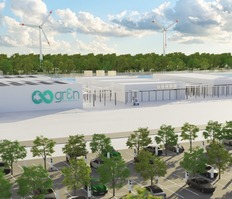
Joint Venture and Plant Construction
gr3n has signed a binding Memorandum of Understanding with Intecsa Industrial to establish a Joint Venture for building a first-of-its-kind manufacturing facility in Spain. The plant will produce 40,000 tons of virgin-like PET annually, with the EPC phase starting in Q4-2024 and operations expected to commence in 2027.
Innovative Recycling Technology
gr3n's unique chemical recycling technology, Microwave Assisted Depolymerization (MADE), can process PET from various industries, including textile waste. This technology breaks down PET into its main components, PTA and MEG monomers, which can be re-polymerized endlessly to produce new virgin PET or other polymers.
Environmental Impact
The plant will process post-industrial and post-consumer PET waste, including hard-to-recycle materials, to produce approximately 40,000 tons of virgin PET chips from recycled monomers. This process is expected to save nearly 2 million tons of CO2 during the plant's operating life, contributing significantly to reducing the carbon footprint of PET recycling.
Advancing Circular Economy
The new facility will enable bottle-to-textile, textile-to-textile, and textile-to-bottle recycling, moving from a linear to a circular system. This approach supports the transition to a circular economy by expanding the range of raw materials that can be recycled and reducing reliance on fossil fuels for producing new PET.

